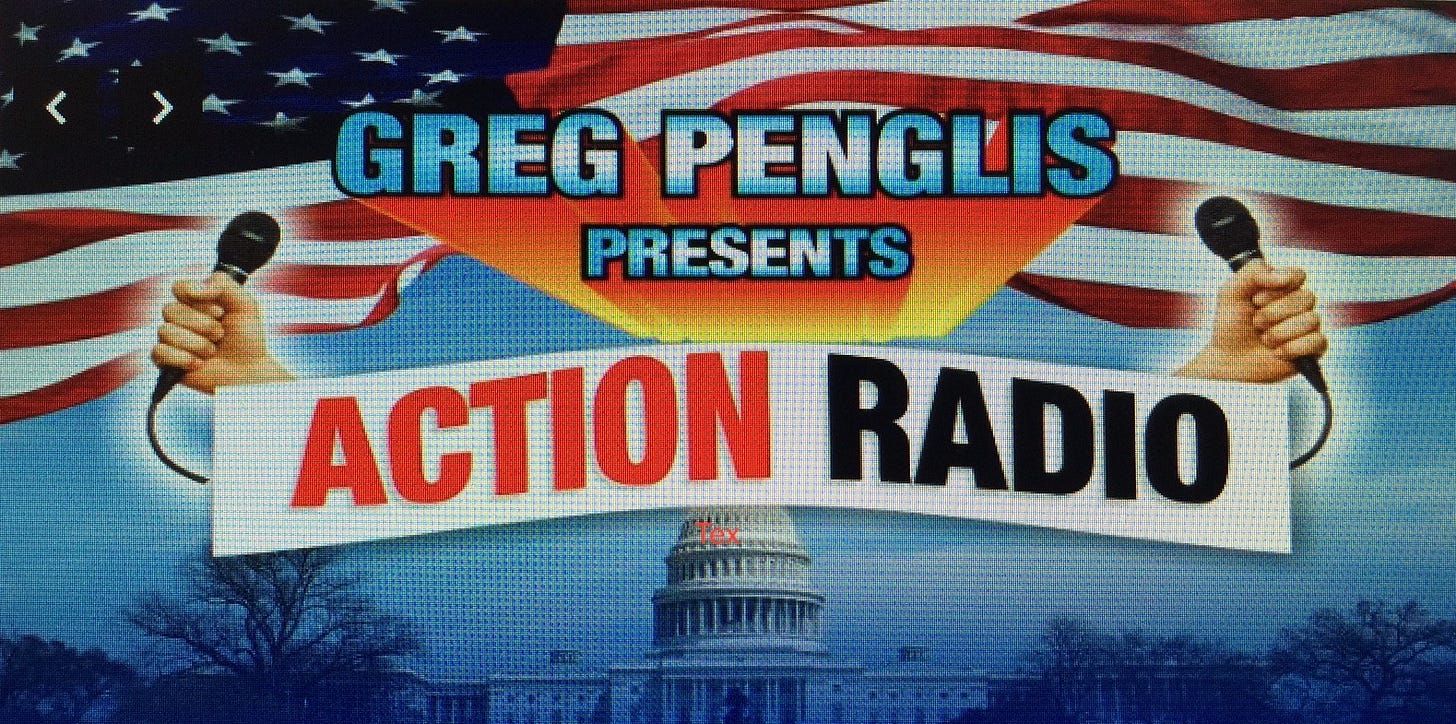Writing a Constitutional Amendment to Stop the WHO Treaty, and All Such Agreements!
This is called "legislating" through article writing.
This will be an unusual article in that I will start with the conclusion and then build the evidence through the Constitution to show the necessity for this constitutional amendment. Here is the text of my proposed amendment:
“Treaties signed by the President and ratified by the Senate shall have jurisdiction only over the Federal Government under this Constitution, and, along with any international agreements, shall not have any jurisdiction, bearing or effect on the Constitution, State Constitutions and powers, or the rights of Citizens of the United States."
I’ve always found it curious why only the Senate had to ratify treaties and not the House. But it makes sense if you think about what was happening back when the Constitution was ratified. The House was to be elected by the people, apportioned among the States, and was in line with a Republic, with the direct representation of — The People.
The Senate was elected by the States through the State Legislatures, thus guaranteeing the direct representation of — The States. This is also in line with a Republic through a separation of powers. All States have two Senators, because all States are equal in power before their creation, the federal government under the Constitution. Therefore it is ultimately — The States — through their Senators, that actually have the power of advice and consent regarding the binding of these United States to a treaty with a foreign nation.
It was presumed I believe according to the language, that when the President negotiated any treaty, the Senate would work with the President, "by and with," during the entire treaty process. Since the Senators represent the States in Congress, the President must effectively work, "and by and with" the States, and therefore has no independent power or authority to enter into a treaty or agreement negotiation without the States.
All treaties are made with foreign governments, not with international organizations. Those are agreements. The question then becomes to whom those agreements made by the federal government have jurisdiction over? The feds, particularly our illegal Coup d’Etat government, would have you believe that any agreement they make, even if it violates our constitutional rights, is still the Supreme Law of the land, because of how treaties, not agreements, are stated in the Constitution. But that is simply not true.
Another consideration of our founding is that there were no agreements with any world government or world organizations, because there weren’t any. The Treaty clauses in the Constitution were made at a time before there were any thoughts of world government organizations or actual bodies. Nations were the highest governing authority, and by themselves had no legal power over other countries, therefore the only place they could reach agreements or contracts were in fact treaties, negotiated by the various heads of state and approved by their federal gov't procedures.
Unfortunately, definitions change. Now there is an attempt to merge international agreements into the concept of treaties, which is completely dishonest and intellectually impossible, if you know the correct word definitions. In order to protect ourselves from our own national government, legal or illegal, and to protect ourselves from all those world government bodies and the nations that support them, even though the Constitution and Bill of Rights do that already, in the interest of constitutional clarification, spelling out exactly the jurisdiction of agreements and treaties and the process for acquiring them, and heading off this kind of problem in the future, I am proposing this constitutional amendment.
“Treaties signed by the President and ratified by the Senate shall have jurisdiction only over the Federal Government under this Constitution, and, along with any international agreements, shall not have any jurisdiction, bearing or effect on the Constitution, State Constitutions and powers, or the rights of Citizens of the United States."
Given the above information that treaties are only meant to be between these United States and other foreign nations, and given the fact that the States ultimately had control of treaty approval through the Senators elected by the State Legislatures, one has to question whether the ratification of the 17th Amendment in 1913, stripping the State Legislatures of their legitimate power under our Republic to elect Senators who would represent the States in Congress, could it not be said now that without the direct input of the States since the 17th Amendment, that no Treaty since 1913 is valid?
No treaty ratified since 1913, is valid…
Think about that. I would contend that any mention of treaties in the Constitution where such treaty clauses were based on the States having final approval of any treaty, that those clauses in the Constitution regarding treaties may no longer be valid either.
Treaty Clauses in the Constitution:
Article I, Section 8, Clause 3: To regulate Commerce with the foreign nations.
This is known in its full clause as the Commerce Clause. This part clearly delegates the power over trade agreements, climate change accords, and other international trade actions, to be regulated by Congress, as they all affect commerce, and commerce particularly with foreign nations. Which means if the President signs an agreement regulating foreign commerce that Congress has not created, it is void. The WHO Treaty (agreement) and all its implied powers over the States and the citizens, and any such agreements, are non-existent until created by Congress, because every permission or restriction, like vaccine passports for example, affect commerce. But it could not be created by Congress because it is a total violation of our Constitution and Bill of Rights. This part of the Commerce Clause does not need amending, it needs enforcing.
Article 2, Section 2, Paragraph 2: Advice and Consent of the Senate.
In addition to arguments made in earlier paragraphs that treaties are invalid after 1913 because the Senate was no longer elected by State Legislatures, the Senate can not give advice and consent because the Senate is not the Senate of the Constitution, but rather the Senate of the 17th Amendment, and as such, invalidates and revokes the original jurisdiction of the States to advise and consent.
Something people forget also are the key words “by and with.” This does not mean the President and Executive create an entire treaty and then hand it to the Senate for approval. That might mean consent, but where was the advice? Advice has to come before the process starts, and during it. Consent only comes at the end. “By and with” means that the Senate and the Executive have to work together, by and with, each other. Since the Senate really means, the States, the President and the States have to work together on treaties, because regulating foreign commerce has been delegated to Congress. Separation of powers.
This clause doesn’t have to be amended, but it has to be used properly. Again the simple answer is to repeal the 17th Amendment, and put State representation back into Congress.
Article III, Section 2: Judicial power shall extend to Treaties made, or shall be made.
Since treaties are with foreign governments it might be advisable to remove these words from Article III, especially since the illegal powers of judicial review and constitutional interpretation have been usurped by the Supreme Court and used to legislate, regulate, make policy, and do a variety of unconstitutional actions. People forget that the Supreme Court is not the Supreme Law of the Land. Its opinions are subordinate to overriding legislation, and the judges subject to removal for bad behavior by Congress. And everything they do is subordinate to the Constitution and Bill of Rights. The only thing the Supreme Court is supreme over are lower federal courts. Therefore to remove the more creative aspects of the Supreme Court, the power over treaties, being international, and properly belonging to the States, the Congress and the President, in that order, these words on treaties need to be removed from Article III.
Article VI, Paragraph 2: All Treaties made, or which shall be Made.
This is what’s known as the Supremacy Clause. But like so much of the Constitution, it’s been changed in meaning to what the federal government wants, which is whatever the federal government does is supreme. That’s simply not true, especially since the federal powers and state powers, are completely separate and different. The States are supreme to anything federal except where the States have delegated certain specific powers to the federal government in the Constitution. Everything else belongs to the States. So the Constitution is the supreme law of the land, and the laws and treaties made “under the authority of the United States,” in other words, compliant with the Constitution, are the supreme law of the land. Any law or treaty not under the authority of the Constitution, in other words unconstitutional, is NOT the supreme law of the land.
What this means is that all the climate change agreements, WHO treaties, trade agreements, in fact anything the President and Executive do that violates the Constitution and Bill of Rights, has no power or authority over the States or the citizens of these United States. I would keep this clause in the Constitution, but like the rest, it has to be used properly, and not “interpreted” to give power where no such authority exists.
So where do we go from here? I see two main options.
*** One is to ratify our constitutional amendment, including a section to repeal the 17th Amendment changing the votes for Senators back to the State Legislatures so they regain their representation and control of the Senate, and keeping the current references to treaties in the Constitution.
*** Two is to adopt our constitutional amendment, leave the 17th Amendment, but then delete or amend any reference to treaties in the Constitution, since ever since 1913 treaties have been ratified without the advice and consent of the States, as intended when the Constitution was ratified by the States.
My preferred option, is, One. So here is how that would look.
Constitutional Amendment:
Section One:
The Constitution shall be amended by adding the following language to Article IV, creating a new Section 5.
“Treaties signed by the President and ratified by the Senate shall have jurisdiction only over the Federal Government under this Constitution, and, along with any international agreements, shall not have any jurisdiction, bearing or effect on the Constitution, State Constitutions and powers, or the rights of Citizens of the United States."
Section Two:
The 17th Amendment is hereby repealed.
Rumble.com/c/ActionRadioRumble - is our current show on Rumble!
WriteYourLaws.com - is where we do all our legislative and advocacy work.
Paypal.me/ActionRadio - Is our fundraising site to advance our freedom.
BlogTalkRadio.com/citizenaction - Is the link to my previous weekday show.







